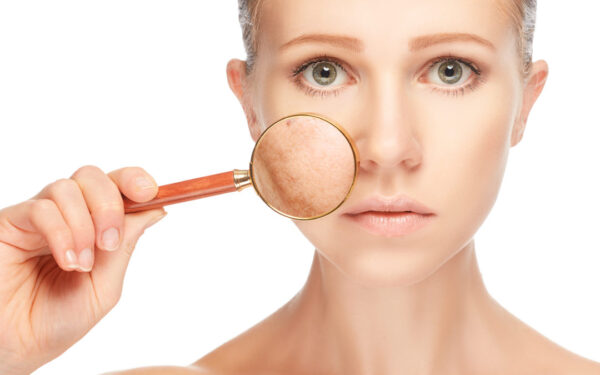8 Foods to Avoid When You’re A Lady With Sensitive Skin

Foods to Avoid When You're A Lady With Sensitive Skin
There are many people who often experience skin rashes, acne-like breakouts, hives, redness, and itching and burning. There are some medical conditions that can cause these symptoms but a recent report indicates that over half of the world’s population suffers from sensitive skin.
Your dermatologist can diagnose whether you have a disease that needs treatment or just a skin condition. Unfortunately, if you do have sensitive skin, you may find that your skin reacts negatively to a number of things. Perfumes, pollution, hormonal changes, the sun, the cold, bath soaps, laundry detergents, skin care products, medications, and household cleaning agents may all cause symptoms. In addition, your skin may even be affected by the foods that you eat.
The Diet and Skin Connection
The relationship between diet and skin conditions has been debated for years. It has long been known that certain nutrients are good for the skin. For example, Vitamin A can keep the skin smooth and supple while a Vitamin A deficiency can lead to abnormally dry skin, cracking, and peeling. But previous studies attempting to link certain foods to skin conditions have produced inconclusive results. Recently, some researchers have had success showing relationships between some foods and acne and other skin conditions. However, these results seem to indicate a more correlational than a causal effect. The good news is that if you have skin problems you can treat them with number of sensitive skin care treatment products from the trusted brands. Nonetheless, it is worth discussing how certain foods can impact our bodies, especially if avoiding them can prevent a variety of annoying conditions.
Foods to Avoid
1 – Soy – Soy has actually been proven to be a very healthy protein but if you are allergic to soy, you can easily develop hives on much of your skin. The reason for this is that most of the soy consumed has been processed with preservatives and synthetic nutrients turning it into something that can be harmful to those with sensitive skin.
2 – Gluten – Gluten is another protein that can be harmful to those with this specific allergy. For those whose systems are intolerant, gluten can actually irritate the lining of the intestines causing any number of digestive issues. Even if you are not allergic, gluten can cause a skin rash called dermatitis herpetiformis in those who have sensitive skin.
3 – Milk and Dairy – Dairy products contain the proteins whey and casein. These can cause allergic reactions not only on the skin but also in other parts of the body. Milk also contains testosterone which has oils that can clog skin pores. The more difficult it is to clean your skin, the more irritation you may experience. You may not be sensitive to every item in the dairy category, so you may want to experiment with the types and amounts that you can eat.
4 – Egg Whites – For some, the body views egg whites as substances that can cause it harm. As a result, it responds by sending histamines that are normally released to fight allergic reactions. But for those with sensitive skin, histamines can produce an instant rash and breakout of hives.
5 – Wine – A few skin conditions can occur when you drink wine. You may get a simple redness or flushed face, but this is very minor and temporary. You might, however, experience a more serious condition known as dermatitis from the wine sulphates.
6 – Sugar – It is common knowledge that certain people like diabetics have a difficult time processing sugar. What is not so well known is that anyone who overindulges in sugar will cause a sugar spike that the body cannot handle efficiently. One of the results is that the body’s systems cannot perform adequate cleansing and that includes the skin. Less clean skin can cause acne.
7 – Fats – Fat by-products that are contained in fast foods are difficult for the body to process. An accumulation of fat cells decreases the system’s efficiency in the elimination and cleansing process. Also, certain omega fatty acids increase the level of skin inflammation causing a skin rash.
8 – Additives – These can be difficult to avoid because they are in a group of foods rather than in a single food item. Ingredients like nitrates, food dyes, sulphites, and MSG can be found in processed foods and can cause allergic reactions like hives and itching. You should check the product labels of foods like frozen entrees and canned vegetables to see if they contain these potentially harmful ingredients.
The Bottom Line
However, since there are so many brands on the market today, you will probably need to try a number of them to determine which will be most effective for you. The key is to find non-fragrance cleansers and moisturizers and lotions that contain only natural oils like coconut or shea butter. You also need to protect your skin from sun damage by using sunscreen year-round and not just in summer. When it comes to makeup, you should only use a minimal amount even if it is hypoallergenic. Finally, you need to adopt a lifestyle and regimen that helps you avoid irritants and to learn how to manage symptoms when they occur.






